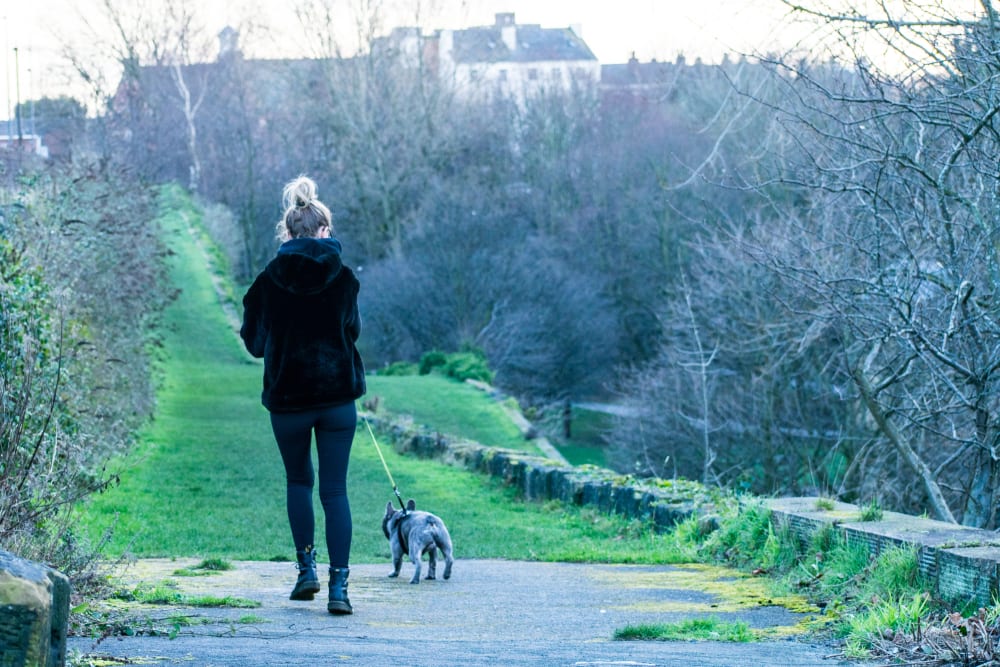
Features
6 amazing health benefits of a 30-minute walk
6 years ago

Right now, millions of us are limiting our outdoor exercise to a simple 30-minute walk just once per day during lockdown, to help curb the spread of coronavirus.
And while you might be missing pumping iron at your local gym, or playing a game of football with friends, the many benefits of going for a solo lap around the block shouldn’t be overlooked.
A brisk walk in the spring sunshine can help to clear your mind, stretch your legs and even help you to discover some beauty spots in your local neighbourhood that you’ve previously ignored.
Here are a handful of other brilliant benefits to taking advantage of a daily, half an hour walk….
It’s a great way to get your vitamin D hit
“Walking has the simple benefit of getting you out of the house and into the fresh air and sunshine, where you can soak up beneficial vitamin D,” says Elliott Upton, personal trainer at Up Fitness.
Often called the ‘sunshine vitamin’, vitamin D is produced in your skin in response to sunlight, and plays an important role in supporting the immune system, reducing depression and aiding the normal development of bones and teeth.
“Moving your body and getting a change of scenery from your place of residence, where you may be spending the other 23 and a half hours of the day, is a great way to break up your schedule too,” he adds.
It can control blood pressure
Studies have found that exercise can be a useful tool in reducing and controlling blood pressure.
“Regularly exercising makes your heart stronger,” says Brendan Street, head of emotional wellbeing at Nuffield Health. “A strong heart can pump more blood with less effort, and if your heart can pump more efficiently, the force on your arteries decreases.” This, in turn, lowers your blood pressure.
If you fancy upping the heart healthy benefits, make sure to pick a local route that involves lots of steep inclines such as stairs and hills, so you can really feel the burn.
It’s low impact
With so many live Instagram workouts now taking place across the day, it can be tempting to fill your time with back-to-back HIIT sessions at home.
But not allowing yourself proper recovery time means you may see sub-optimal gains, and lack of proper rest can also impact your immune system, your susceptibility to illness, your mood and your sleep too.
Thanks to it’s gentle, low-impact nature, walking is a great recovery tool for rest days, allowing your body to repair muscle tissue and become more resilient for future exercise.
It can keep weight down
“Walking is an excellent way to help manage your weight and body fat levels, especially during lockdown when many people will be sedentary for long periods – whether that’s being stuck at home on the sofa in front of the TV or working on a computer,” says Upton.
In particular, he notes that it’s a great way to increase your daily energy expenditure. “Walking falls into the category of NEAT (non-exercise activity thermogenesis) – daily activities including walking the dog, gardening, playing with the children, doing household chores and DIY that all add to your overall daily calorie burn.”
It can help with anxiety
As well as the physical benefits of moving your body, it can boost wellbeing too. “Low-intensity aerobic exercises, such as walking or yoga for 30 to 35 minutes, three to five days a week over 10 to 12 weeks have been shown to deliver powerful stress relief,” says Street.
“Studies show there is a strong link between exercise and improved mood, and research also shows that exercise has a positive effect on symptoms of anxiety and depression – in particular aerobic exercises, like running and cycling, but also activities like walking, and gardening.”
Anyone can do it
Perhaps the most amazing thing about walking is that pretty much anyone able-bodied can do it. It’s gentle, low-cost and is suitable for all fitness levels.
Plus, it’s the recommended form of exercise for lots of countries at the moment, so you can soak up the brilliant benefits while also keeping your community safe at the same time.










 Subscribe
Subscribe Follow Us
Follow Us Follow Us
Follow Us Follow Us
Follow Us Follow Us
Follow Us Follow Us
Follow Us











